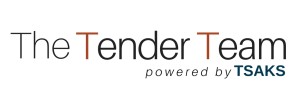For any organisation, answering challenging tender questions can be the difference between a tender proposal that is short-listed and one that is not. Listed below are three examples of how challenging tender questions can damage a tender proposal before it has even been submitted.
Ongoing legal actions or investigations
 While many companies will be currently clear of any contentious and long-lasting litigation when applying for tenders other tenderers may find themselves subject to ongoing legal action. In this scenario, we encourage our clients to fully disclose the nature of any ongoing litigation or investigations by government departments. We firmly believe that an ‘honesty is the best policy’ approach is the best one. It is also apt to recognise that many tenders are issued by government departments who are more than capable of reviewing a tenderer’s legal history as a natural part of the tendering process if required.
While many companies will be currently clear of any contentious and long-lasting litigation when applying for tenders other tenderers may find themselves subject to ongoing legal action. In this scenario, we encourage our clients to fully disclose the nature of any ongoing litigation or investigations by government departments. We firmly believe that an ‘honesty is the best policy’ approach is the best one. It is also apt to recognise that many tenders are issued by government departments who are more than capable of reviewing a tenderer’s legal history as a natural part of the tendering process if required.
In many cases, some tenderers may find themselves the respondents to legal action by competitors, suppliers, or other parties that may have an agenda derived from some past slight against them. It is critical to provide accurate responses to legal inquiries that position your organisation responsibly.
When it comes to investigations, details provided for each question must also be 100% accurate and must be provided succinctly in order to answer the question. At heart, these matters are mostly confidential but the procuring team/selection panel must be able to grasp the manner of a tenderer’s current legal actions and investigations completely in order to assess the proposal. Our team of proposal and bid writers is ready to help you navigate this area.
Health, Safety and Environmental Violations
Many companies will already have in place HSE requirements incorporated into their WHS and other safety management plans. This helps prevent hazards from occurring in the workplace. However, incidents of this nature are not always preventable and accidents do occur where someone gets hurt.
We generally advise our clients to respond truthfully to each question asking for details of these HSE violations, usually within a certain time period (ie. 5 years). What is most important in responding to these questions is not only disclosing the details of each event where HSE guidelines and regulations were breached but also the steps taken to prevent them from occurring again. For many of our large organisational clients, we are readily able to address one or two HSE violations with adequate safety measures and a proactive plan for any future incidents that may occur.
Ultimately, we strongly encourage our clients to implement new hazard prevention methods in their workplace (if they haven’t already done so) so that we counterbalance past incidents by demonstrating our clients’ initiative through enforced safety management plans.
We are able to assist in these areas by reviewing current safety procedures and how they adequately respond to hazards whenever they occur. our tender preparation services including providing this supporting documentation, which is increasingly becoming necessary for private as well as government bids and is critical to winning new contracts.
Contract Non-Compliance
Certain tenderers may find issue with questions or sections within a tender asking to state any non-compliances with any of the contract’s clauses or other requirements. We advise in these circumstances to provide as many details as requested as to why a tenderer fails to comply with a certain clause and proposes an amendment to be made on their behalf or an alternative action be completed in order to satisfy the tender criteria.
In these respects, the selection panel/procuring team’s task of choosing the winning bid will be made simpler by being able to assess whether the non-compliance or alternative action proposed is enough in comparison to the other bids.
How inductive reasoning can help you
In a competitive tender, you don’t always have all the information you require. Many RFQ or RFP documents aren’t detailed enough and you need to read between the lines. Often an addendum are issued, but sometimes they do not provide clarity. You will often need to conduct a fair bit of background work to deliver a quality response.
When we complete a tender response, we often overlook key points such as “safety”, “quality” or “methodology”. Because of this, it can be easy to miss the subtext behind these questions. But these questions will give us clues about what the buyer is hoping to achieve.
When you’re not sure of a fact in the document, then you can ask a question and try and get an answer.
But part of the art of winning competitive tenders is in trying to work out “what is not included in the facts”. That means that you have to work with information you believe to be correct, or have found to be correct most of the time, to come to a specific solution (“Inductive Reasoning”).
It may come to a point that you’re not sure what a tender question means. More than likely you may not want to ask because your embarrassed. So what you can do instead is deduce and infer the buyer’s meaning by closely investigating the way the question is asked.
Think about the “question behind the question”:
- Why are they asking this question?
- What do they really want to know?
- How important is this answer in their decision-making process as a whole?
You have to realise that in a face to face meeting you can ask questions and get a response from your potential buyer. In a competitive tender the positions are reversed. Buyers use tender documents to ask questions.
Like we stated, when planning your answer always think about “the question behind the question”. Remember that this could mean the difference between a convincing proposal and one that falls short of the customer’s high expectations.
We’re ready to help
Our team is ready to help you understand any tender questions you may have. We can help you understand “the question behind the question” and give your tender response the detail that’s needed. Give our Director, Jason Cooney, a call on 0410 448 770. We’re based in Sydney, but we love helping clients in regional and remote Australia.




